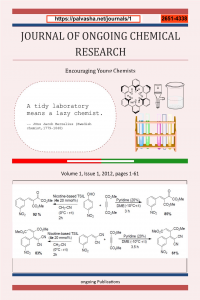Synthetic Biscoumarin Analogs: Their PC3 Cell Line and Antioxidant Inhibitory Potentials
Synthetic Biscoumarin Analogs: Their PC3 Cell Line and Antioxidant Inhibitory Potentials
___
- Au, Nicholas; Rettie, Allan E (2008). "Pharmacogenomics of 4- hydroxycoumarin anticoagulants", Drug metabolism reviews, 40, 355-375
- Blois, Marsden S (1958). "Antioxidant determinations by the use of a stable free radical", Nature, 181, 1199-1200
- Boyd, Lara K; Mao, Xueying; Lu, Yong-Jie (2012). "The complexity of prostate cancer: genomic alterations and heterogeneity", Nature Reviews Urolog,y 9, 652
- ISSN: 2651-4338
- Başlangıç: 2012
- Yayıncı: SciMatic Yazılımları Danışmanlık
Adekunle Babajide ROWAİYE, Olukemi Adejoke ONUH
Synthetic Biscoumarin Analogs: Their PC3 Cell Line and Antioxidant Inhibitory Potentials
Symptoms, transmission, pathogenesis, and future ways to control the spread of Coronavirus COVID-19
Ahmad Ali Qurashi ALFAROOQİ, Muhammad ATEEQ, Akhtar MUHAMMAD
